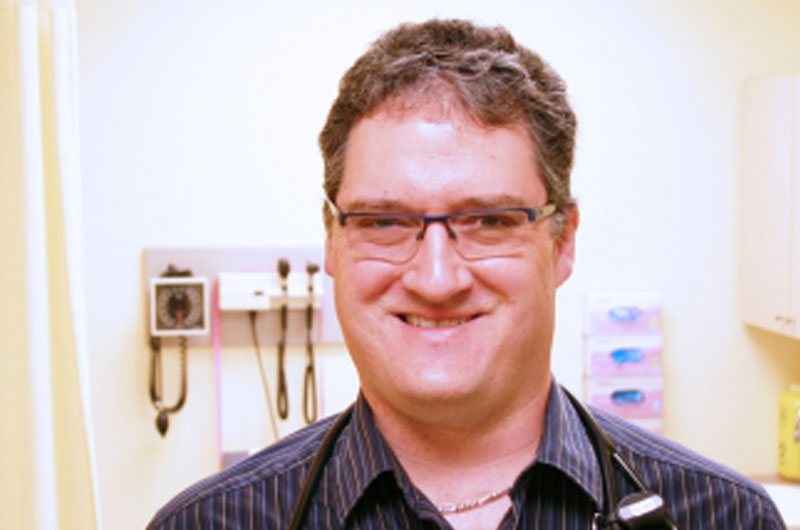Dr. Jean-Pierre Arseneau
May 1, 2017 - Profiles
Q&A with Dr. Jean-Pierre Arseneau on reducing unnecessary blood tests in New Brunswick.
Dr. Jean-Pierre Arseneau
May 1, 2017 - Profiles
Q&A with Dr. Jean-Pierre Arseneau on reducing unnecessary blood tests in New Brunswick.

Choosing Wisely Canada: How have you implemented these recommendations in your practice?
Dr. Jean Pierre Arseneau: Being involved with the College of Family Physicians of Canada, I had the chance to look at the Choosing Wisely recommendations and hear about the implementation work going on in Family Medicine across the country. This made me reflect on my own practice. I noticed that many of my patients, or the patients I have accepted from other practices, had been recurrently tested for a large part of their life – sometimes unnecessarily. For example, one patient had had cholesterol testing every 3 months for 14 years without treatment.
In response, I requested that all recurrent testing requests for my patients at the hospital lab be sent to me for review. Many patients had been booked for repeat testing every 2-3 months for cholesterol, fasting sugar and/or HbA1c, and/or thyroid.
Following the Choosing Wisely Canada theme, I’ve made some significant changes. I’ve stopped routine PSA blood testing, and paced the HbA1c at 6-month intervals (unless the patient is unstable). The diabetes nurse navigator does the same. We have spaced thyroid testing from 6 to 12 months. We have stopped ordering fasting sugars altogether, in favour of HbA1c. We will be re-spacing cholesterol monitoring as well.
This by itself has cut the rate of unnecessary blood testing at the hospital lab from my practice by 48%- 50%. My single impact may be modest but if multiplied by many physicians, could make a big difference.
CWC: How have you brought the principles of Choosing Wisely to your relationship with patients?
JPA: Our review of lab testing has created personalized “best courses of treatment” for patients. And we have reduced wait times for patients who need lab testing.
CWC: What does Choosing Wisely mean to you as a family physician?
JPA: By examining my practice and all the little bits and pieces of what we do every day, we can increase patient safety and improve stewardship of the resources we have in Canada. The savings accumulated could be applied to better technology, studying culture change, and preventing and/or maintaining care for the elderly population coming down the pipe. We are looking forward to progressing our Choosing Wisely efforts over the next few months.
This article first appeared in Canadian Family Physician. The interview was prepared by Dr Kimberly Wintemute, Primary Care Co-Lead, and Hayley Thompson, Project Coordinator, for Choosing Wisely Canada.
